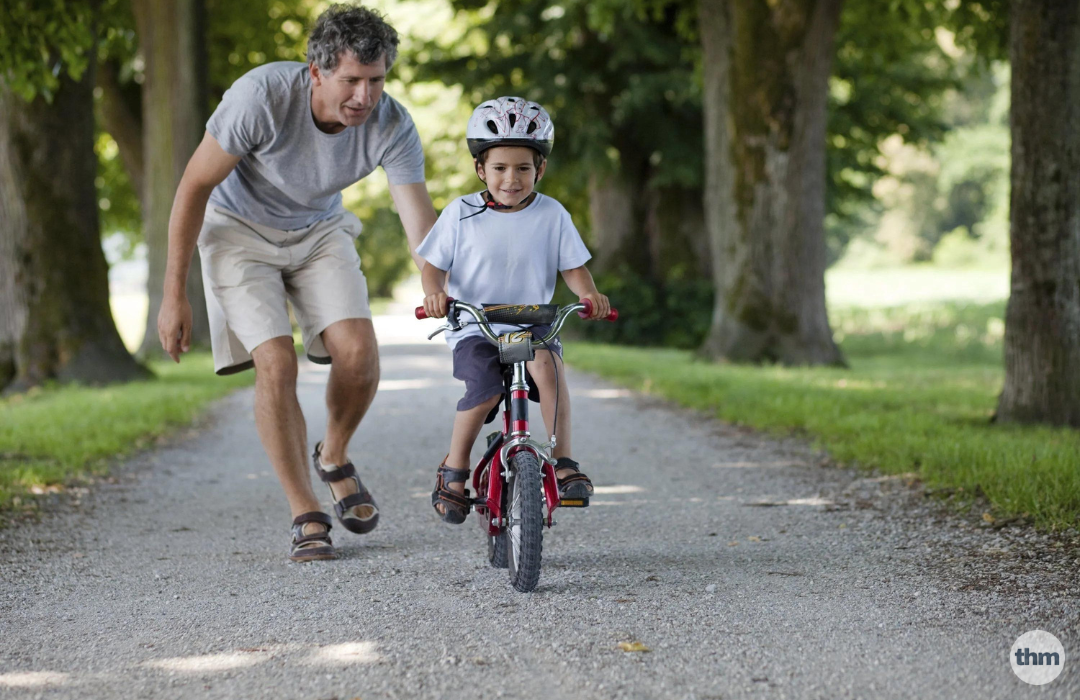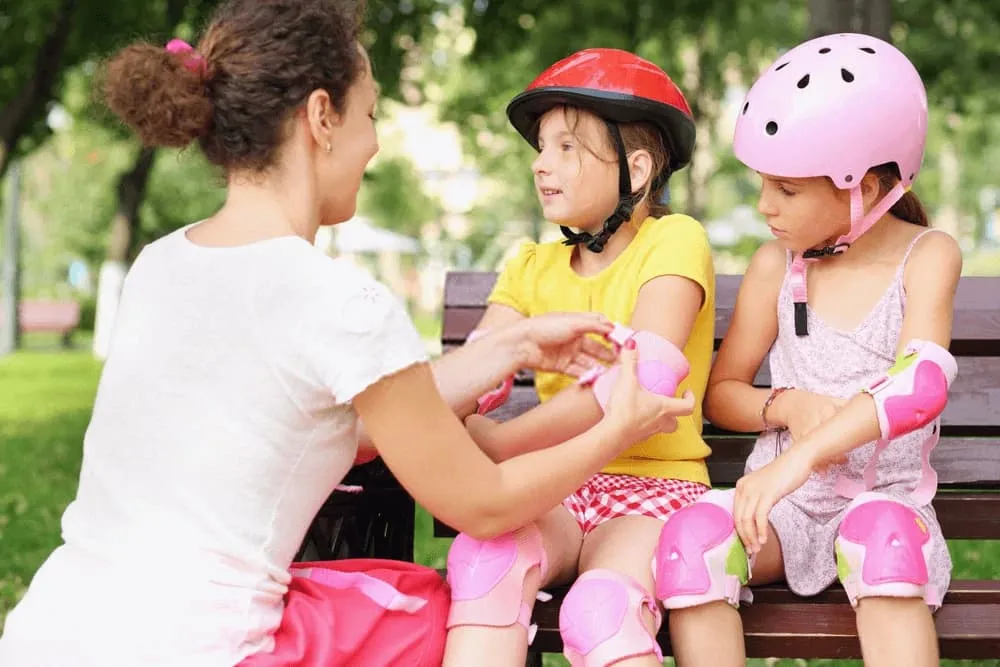
Teaching Your Child How to Ride a Bike
This page contains affiliate links for which we may be compensated
Last updated: July, 2024
Learning how to ride a bike is a milestone in a child’s life that brings a sense of independence and joy. As a parent, you play a crucial role in guiding your child through this exciting journey. This article will provide you with a comprehensive guide on teaching your child how to ride a bike, ensuring a positive and successful experience.
Four easy steps to teach your child how to ride a bike:
Bike Selection
Choosing a bike that is suitable for your child is the first step towards teaching them how to ride. Your child needs to be able to sit on their balance bike with both feet flat on the ground and their knees slightly bent. If this isn’t the case, make the necessary adjustments to the bike’s handlebars and saddle. A further thing to think about is whether your child would prefer a traditional balance bike or a wooden one. The traditional balance bike is made to look like an adult bike without the pedals.
When it comes to teaching your child to ride, patience is a virtue, and you should avoid trying to force them into anything. Allow the child to learn at his or her own pace; forcing them to do anything against their comfort level will undermine their self-esteem.
Recall that the purpose of riding a bike is to have fun, and if you put any pressure on your child to enjoy it, they won’t. While some kids try things out by walking and pushing their bikes first, others hop on the saddle and pick things up quickly. To encourage your child to ride their balance bike, play them some videos of other kids having fun, even if they are afraid or intimidated by it themselves.
Location
Selecting an appropriate location for your child to learn how to ride is also crucial. Large, open spaces free of hazards or distractions would be ideal for them to be in. This is great if you are lucky enough to have a large garden, but parks or playgrounds can work just as well. If you have enough room, you can let kids start riding balance bikes inside the house to help them gain confidence because they typically have softer tires. Kids will find it easier to learn how to ride on harder surfaces, so it’s not always the best idea to ride on grass or other soft surfaces.
Safety
No matter where your children ride, it’s critical to take the appropriate safety measures. Ensure that your child is always riding with a helmet on and that it fits properly. Additionally, the helmet needs to be correctly put on, with the straps tightened to protect the head. Since your child will be starting and stopping with their feet, they also need to wear sturdy shoes.
Allowing them to ride in sandals or bare feet is not advised, particularly if they gain confidence and begin to ride faster as this may result in injuries when they attempt to stop. Bike gloves are another item of protective clothing to think about. Your child has something to shield their small hands in the unlikely event that they fall over.
Your child will first need to learn how to maintain their balance when riding the bike; while this is a much simpler process than learning to ride a pedal bike, it can still take some time. Your child will begin to raise their feet off the ground for longer periods of time as they gain confidence in their abilities. If the balance bike model they are using has footpegs, they may even place their feet on them.
While watching children as they learn to ride is crucial, avoid giving the bike too much support. Although it is a normal parental instinct to want to keep your kids safe, if you are always reaching for the balance bike whenever it appears that it might topple over, your kids will never learn how to balance.
By walking close to the child or putting your hand on their shirt, you can help them feel more secure rather than having to steady their bike every time it leans to one side. If you must assist them, make sure they maintain their feeling of the bike by supporting them from under their arms rather than the saddle or handlebar.

Support
Finally, it’s critical to give your child lots of encouragement when it comes to learning. Congratulate them when they succeed in something, such as sliding a short distance or placing their feet on the footpegs, and offer support when they encounter difficulties. If your child stumbles, try not to panic or become discouraged by losing your cool.
Your child will become a better rider the more they practice, and you can even add games to the process to make it more enjoyable for both of you. To teach your child to look where they are going instead of down at the bike, challenge them to drive over marked spots or drive between cones. In order to promote coasting, you can even use chalk lines to indicate the child’s foot placement in between scoots. Then, you can challenge them to beat their prior records.
Frequently Asked Questions (FAQs)
Conclusion
Teaching your child how to ride a bike is a rewarding journey that requires patience, support, and encouragement. By following these step-by-step guidelines, you can ensure a positive and successful experience for your child as they embark on the exciting adventure of riding a bike. Remember, the key is to create a safe and enjoyable environment that fosters their love for cycling and builds lifelong skills.